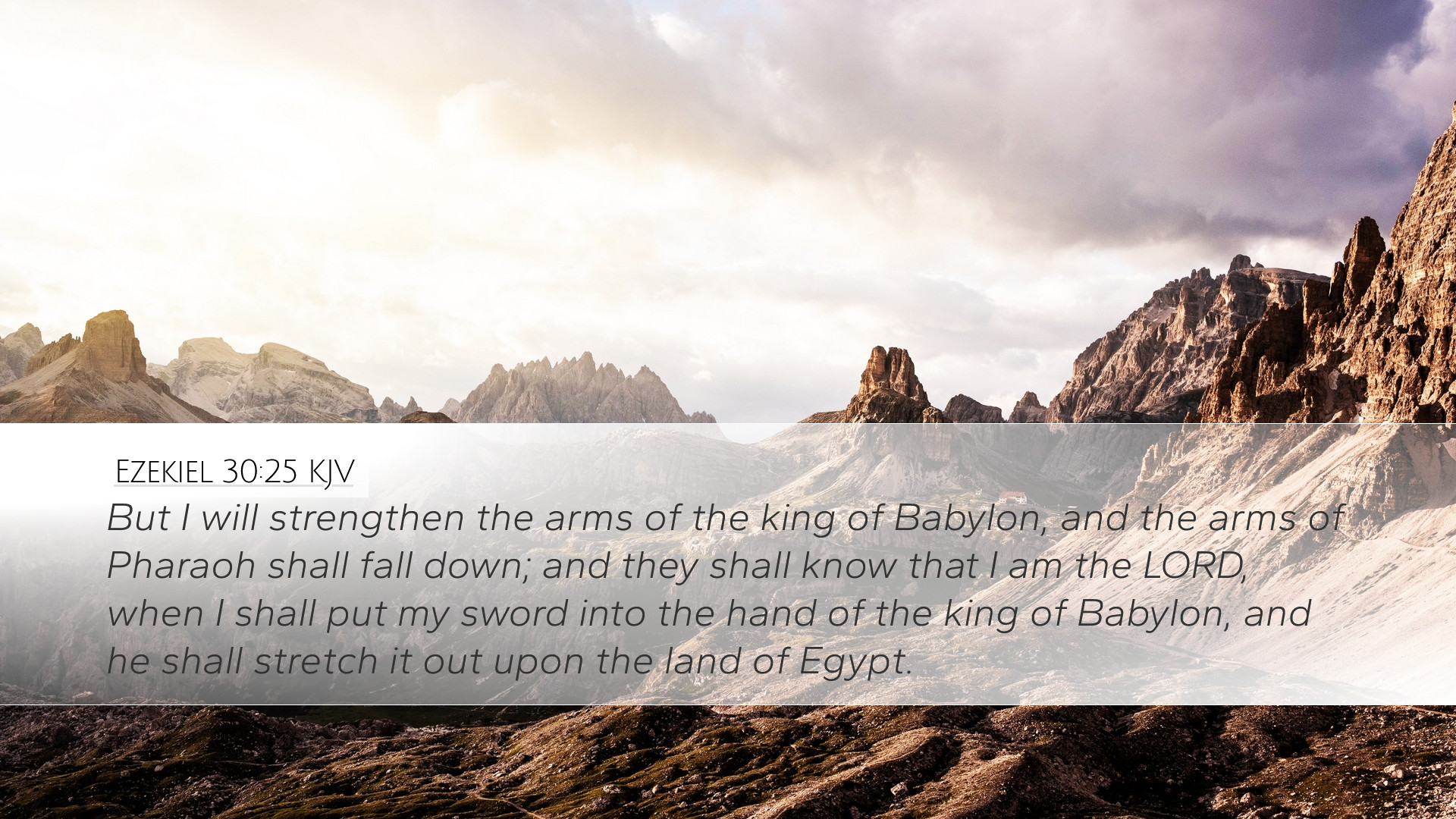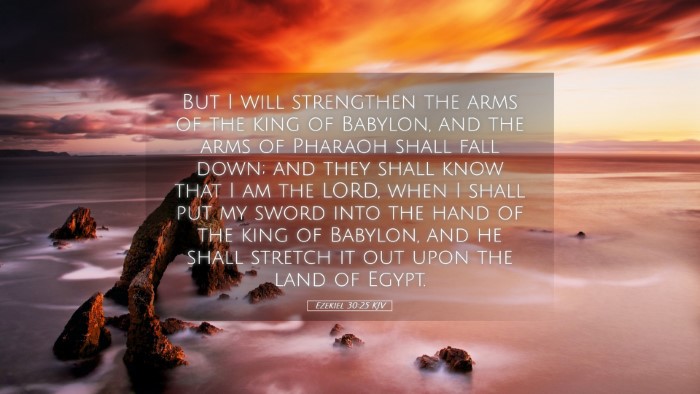Ezekiel 30:25 Commentary
Verse: "But I will strengthen the arms of the king of Babylon, and the arms of Pharaoh shall fall down; and they shall know that I am the Lord, when I shall put my sword into the hand of the king of Babylon, and he shall stretch it out upon the land of Egypt."
Introduction
The book of Ezekiel is a profound prophetic work that addresses the judgments of God upon the nations and the ultimate restoration of Israel. In Ezekiel 30:25, the prophet speaks of God's sovereignty over powers of the earth, particularly focusing on Babylon and Egypt. This passage serves as a critical point in understanding the dynamics of power during Nebuchadnezzar’s reign and God's role in the unfolding of historical events.
Commentary Insights
Contextual Background
This verse is situated within a broader prophetic oracle against Egypt, emphasizing God's judgment over nations that oppose Him. The context reveals that Egypt had been a significant power and ally, yet it stood in opposition to God's plans for Israel. This passage is intended to demonstrate the ineffectiveness of their might against the divinely appointed ruler, Nebuchadnezzar.
Divine Sovereignty
Albert Barnes elaborates that the act of strengthening the arms of the Babylonian king signifies God's control over both the oppressors and the oppressed. It indicates that divine power can just as easily raise a nation as it can bring one down. This sovereignty is essential for believers to understand as it reassures them that no earthly authority is beyond God's command.
The Role of Nebuchadnezzar
Matthew Henry notes that Nebuchadnezzar is depicted here as an instrument of God's judgment. While he appears to wield the sword, it is, in reality, the Lord who directs this power against Egypt. This insight brings clarity to the nature of divine instrumentation—God often uses secular powers to fulfill divine purposes.
Judgment on Egypt
The phrase "the arms of Pharaoh shall fall down" emphasizes the futility of Egyptian strength when opposed to divine will. Adam Clarke asserts that the fall of Pharaoh symbolizes the ultimate failure of pride and false security. Even the mightiest leaders cannot withstand the judgment of God, which serves as a reminder of human limitation and the eventual triumph of divine justice.
Recognition of God’s Authority
The concluding part of the verse speaks to the recognition of God’s authority. The statement "they shall know that I am the Lord" signifies that through the unfolding of these events, both the Babylonians and Egyptians will realize the supremacy of God over all nations. Matthew Henry emphasizes that God's ultimate goal in enacting judgment is the revelation of His holiness and power to both His people and the world.
Application for Believers
For pastors, students, and theologians, this passage invites deep reflection on the nature of God’s sovereignty in history. It reminds believers that despite the apparent control of powerful nations, God operates behind the scenes, orchestrating events to align with His divine purposes. This commentary encourages faithful dependence on God amid societal and political upheaval.
Meaning for Today
Albert Barnes suggests that this verse is particularly relevant to contemporary issues of geopolitical conflict and power dynamics. As nations rise and fall, believers must maintain a kingdom perspective, recognizing that earthly kingdoms are transient while God’s kingdom is eternal. This awareness fosters a sense of hope and purpose amidst uncertainty.
Conclusion
In summary, Ezekiel 30:25 serves as a powerful reminder of God’s control over human affairs and His ability to use nations as instruments for His will. Through the insights of public domain commentaries, we gain a richer understanding of the text's implications for faith, leadership, and divine authority. As we engage with this passage, may we be inspired to trust in God’s sovereignty and proclaim His lordship in all circumstances.


